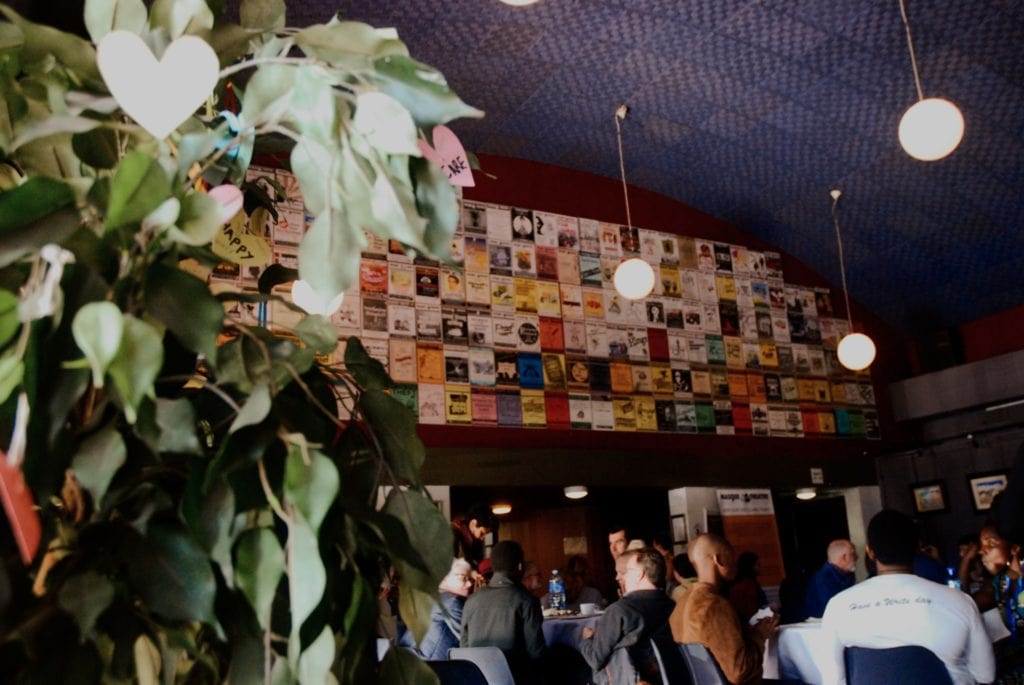Janni Younge, the multi-award winning South African Puppeteer, facilitated the Cradle of Creativity’s Producers’ Bazaar on 22nd and 23rd May 2017 at The Masque Theatre in Muizenberg, Cape Town.
The Bazaar emphasised the importance of making interpersonal connections during conferences and festivals like the Cradle of Creativity so that Artists, Directors and Producers alike may learn from one another and develop collaborative projects.
Theatre Makers from South Africa and around the world discussed the value and challenges of intercultural and cross-disciplinary work. Below are some quotes from participants in an open discussion that considered artistic, aesthetic and socio-political differences that may arise in intercultural productions:
“[The discussion was] an exchange about the process about creating intercultural work. What does it take from a production point of view? What is it like to produce a festival that hosts international work? What is it like to try and tour international work abroad? What are some of the problems and challenges that face artists from South Africa but also around the African continent?”
“It was good seeing people from different cultures standing united and doing one thing.”
“I think there’s also potential, in intercultural collaborations, for there to be one group that is dominant. Either because they brought the funding for the project […] or because they are speaking a first language and the other group is responding in a third language.”
“there’s also potential, in intercultural collaborations, for there to be one group that is dominant”
“There’s often an assumption on the part of our more privileged partners that it’s easier than it is. And I’m talking about things like internet access for people who are literally having to come from the field to a small, little Internet cafe where there may be electricity that day and there may not be. It’s things like ‘we had to apply for a passport’, and ‘it took a long time’ and ‘we forgot to factor that into the budget’ and so I think my plea, or my call, would be for increased understanding around logistics of moving people from spaces into other spaces.”
“The way to overcome those things is to be as self-sufficient as possible.”
“I used a lot of Applied Theatre methodologies […] with the intention of allowing people to express in the forms they felt comfortable with and not necessarily through language […] whether that’s making a song, or making a piece of Image Theatre or just writing a poem or whatever […] Those kinds of skills and ways of bringing people together are potentially ways of overcoming a language barrier.”
“The missing conversation that doesn’t happen with intercultural work […] is a conversation of difference. And those conversations aren’t happening because we are assuming, or we take, a melting pot approach to difference. And the conversation that needs to happen […] is allowing time and space for the differences to engage […] without sugar coating.”
“The missing conversation that doesn’t happen with intercultural work […] is a conversation of difference.”
“The way to make it [difference] productive is through play, and making processes playful.”
“[It is important to] become humble. My truth might be my truth in my country, but it might not be your truth here.”
“My truth might be my truth in my country, but it might not be your truth here.”
